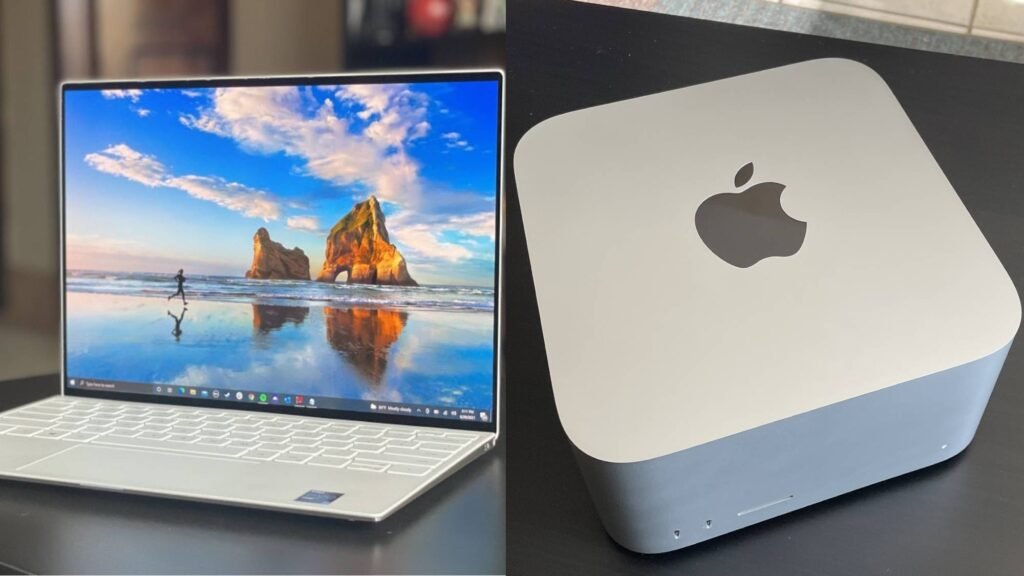When deciding between a laptop or desktop, it’s important to weigh the pros and cons of each. Both have unique features that cater to different needs. Here’s a guide to help you determine which is the better choice for you.

Portability vs. Performance
Laptops: The Portable Choice
Laptops are known for their portability. If you need to work or study on the go, a laptop is an excellent choice. You can easily carry it to different locations, making it ideal for frequent travelers or students. Additionally, modern laptops offer impressive performance, often matching or surpassing desktops for many tasks.
Desktops: The Performance Powerhouse
On the other hand, desktops generally offer superior performance. They have more powerful processors, better graphics cards, and can handle intensive tasks like gaming or video editing more efficiently. If you don’t need to move your computer often, a desktop might be the better option for you.
Cost Considerations
Laptops: Higher Price for Portability
Laptops can be more expensive than desktops with similar specifications. The added cost is often due to the compact design and portability features. If budget is a concern, you might get more bang for your buck with a desktop, as you can typically buy higher-spec components for the same price.
Desktops: More Cost-Effective
Desktops usually provide better value for money. You can often get more powerful hardware for less cost compared to laptops. Additionally, desktops are easier to upgrade, allowing you to enhance performance without replacing the entire system.
Upgradability and Customization
Laptops: Limited Upgradability
One downside of laptops is their limited upgradability. While you can upgrade components like RAM or storage in some models, many parts are built-in and not easily replaceable. If you prefer to customize your system or upgrade components regularly, a laptop might not be the best choice.
Desktops: Easier to Upgrade
Desktops offer superior upgradability. You can easily swap out components like the graphics card, processor, or add more storage as needed. This flexibility makes desktops a great choice if you plan to upgrade your system over time.
Space and Setup
Laptops: Space-Saving
Laptops are compact and space-saving. They don’t require a dedicated desk or workspace, which is perfect for small living areas. You can use a laptop on a table, couch, or even in bed. This flexibility makes it an excellent option for those with limited space.
Desktops: Requires More Space
Desktops, on the other hand, need a dedicated workspace. They consist of multiple components including the monitor, CPU, and peripherals. If you have a spacious home office or desk setup, a desktop will fit well and provide a stable working environment.
Battery Life vs. Power Supply
Laptops: Battery-Powered
Laptops run on battery power, which offers the advantage of using your computer without needing a constant power source. This feature is essential for working in places without access to outlets. However, battery life can vary, so you might need to recharge frequently.
Desktops: Constant Power Supply
Desktops require a constant power supply, which means they don’t have to worry about battery life. This setup ensures that you won’t experience unexpected shutdowns due to battery depletion. However, it also means you need to be near a power outlet, which can limit your mobility.
Conclusion
Choosing between a laptop or desktop depends on your needs and preferences. If portability and space-saving are priorities, a laptop is a great choice. Conversely, if you value performance, upgradability, and cost-effectiveness, a desktop might be the better option. Consider your usage patterns and requirements to decide which option is best for you.











